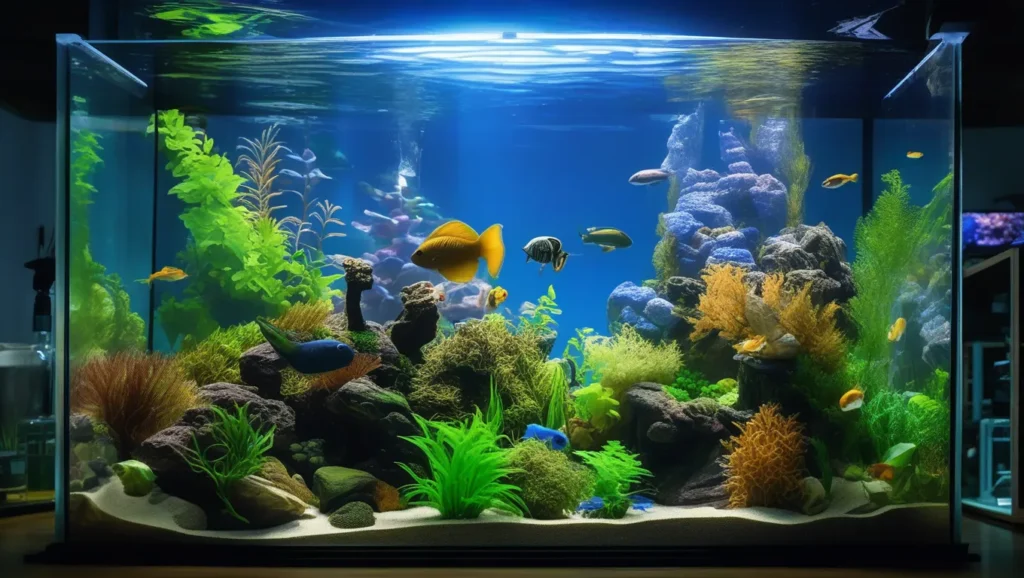Aquarium keeping has long been a popular hobby enjoyed by millions around the world. However, it’s not just about creating a visually stunning underwater scene within the confines of glass walls. More than ever, aquarium keeping is emerging as a significant tool in science and conservation. This article will explain the multifaceted role aquariums play in scientific research, environmental awareness, and species conservation.
The Science Behind Aquarium Keeping
Aquariums serve as controlled environments for studying underwater ecosystems. By mimicking natural habitats, they allow researchers to observe behaviors, breeding, and interactions of aquatic species in ways that would be challenging in the wild.
Research Opportunities
Aquariums offer an abundance of research opportunities due to their ability to simulate natural environmental conditions. They facilitate experiments and studies that contribute to our understanding of marine biology and ecology.
- Behavioral Studies: By observing fish and invertebrates within aquariums, scientists can gain insights into their natural behaviors, social structures, and breeding habits.
- Disease Research: Aquariums provide a controlled setting for studying aquatic diseases and developing treatments, which is invaluable for both wild and farmed aquatic populations.
- Environmental Impact Studies: Researchers can investigate the effects of environmental changes, such as temperature fluctuations and chemical exposures, on marine life.
Educational Value
Aquariums are also potent educational tools. They provide both children and adults with firsthand exposure to marine life, fostering a deeper appreciation and understanding of aquatic ecosystems.
- Accessible Learning: Aquariums serve as interactive classrooms, offering educational programs and hands-on activities.
- Interactive Displays: Many modern aquariums feature interactive displays and virtual reality experiences to enhance visitors’ understanding of marine life and ecosystems.
The Role of Aquariums in Conservation
Beyond their educational and scientific value, aquariums have become a cornerstone in conservation efforts, particularly for endangered species.
Preservation of Endangered Species
The breeding and care of endangered species within aquariums are crucial to preventing extinction. By providing optimal conditions, aquariums can support breeding programs aimed at maintaining genetic diversity and population numbers.
- Captive Breeding Programs: These programs focus on increasing the population of endangered species with the goal of eventual reintroduction into the wild.
- Genetic Studies: Aquariums facilitate genetic research that can aid in conservation strategies, such as identifying genetic bottlenecks and minimizing inbreeding.
Public Awareness and Advocacy
Aquariums act as platforms for raising public awareness about conservation issues, encouraging individuals to support and contribute to efforts aimed at protecting marine environments.
- Conservation Campaigns: Many aquariums engage in global conservation campaigns that motivate public action and policy changes.
- Partnerships with Conservation Organizations: Collaborations with environmental organizations enhance the reach and impact of conservation strategies.
Aquarium Design and Management: Balancing Beauty and Sustainability
Creating and maintaining an aquarium involves striking a balance between aesthetic appeal and ecological responsibility.
Sustainable Practices
Aquariums have increasingly adopted sustainable practices, minimizing their ecological footprints while maximizing their educational and conservation roles.
- Eco-Friendly Materials: The use of sustainable building materials and energy-efficient systems is a growing trend in aquarium design.
- Water Recycling and Conservation: Advanced filtration systems allow for the recycling and conservation of water, reducing the impact on natural resources.
Technological Advances
Technology plays a vital role in modern aquarium keeping, from maintaining water quality to enhancing the viewer’s experience.
- Automated Systems: Automated monitoring systems ensure optimal water quality, temperature, and feeding schedules.
- Virtual Reality and Interactive Exhibits: These innovations provide immersive experiences that captivate and educate audiences.
The Future of Aquarium Keeping
As technology advances and our understanding of marine ecosystems deepens, the potential for aquariums as scientific and conservation tools continues to expand.
Innovations and Challenges
While aquariums face challenges such as ethical concerns and resource limitations, innovative solutions are constantly being developed.
- Ethical Considerations: Addressing ethical concerns involves ensuring the welfare of captive animals and the ethical sourcing of wild specimens.
- Collaboration and Funding: Partnerships with academic institutions, government bodies, and NGOs, along with increased funding, can support the growth of aquariums’ roles in research and conservation.
Pioneering Conservation Efforts
Looking forward, aquariums are expected to take leadership roles in global conservation efforts, influencing policy and sparking action on climate change and biodiversity protection.
- Global Conservation Networks: Establishing networks of aquariums to share knowledge and resources will be crucial for effective conservation.
- Community Engagement: By involving local communities, aquariums can promote sustainable practices and foster grassroots conservation movements.
In conclusion, aquarium keeping is evolving beyond a hobbyist pursuit, offering vital contributions to scientific research, education, and the conservation of aquatic ecosystems. As we harness technology and foster collaborative efforts, the role of aquariums in preserving our blue planet will only grow stronger.

